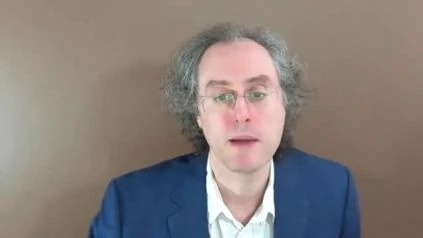Jared Weiss, MD, Associate Professor Clinical Research Hematology/Oncology from Cancer Grace speaks about FDA Approves First Therapy Developed to Help Protect Against Chemo Side Effects: G1’s COSELA.
Link To Press Release –
http://investor.g1therapeutics.com/news-releases/news-release-details/fda-approves-g1-therapeutics-coselatm-trilaciclib-first-and-only
TRIANGLE PARK RESEARCH, N.C., Feb. 12, 2021 (GLOBE NEWSWIRE) — G1 Therapeutics, Inc. (Nasdaq: GTHX), an oncology company in the commercial stage, today reported that the U.S. COSELATM (trilaciclib) has been approved for injection by the Food and Drug Administration (FDA) to minimize the occurrence of chemotherapy-induced myelosuppression in adult patients when administered prior to a platinum/etoposide-containing or topotecan-containing regimen for large-stage small cell lung cancer (ES-SCLC). It is the first and only therapy intended to help protect bone marrow (myeloprotection) when offered prior to chemotherapy treatment. COSELA is scheduled to be available commercially in early March via G1’s specialty distributor partner network.
Chemotherapy is an effective and essential cancer-fighting tool. Chemotherapy does not distinguish, however, between healthy cells and cancer cells. It destroys both the bone marrow that produces white blood cells (immune cells that help combat infection), red blood cells (cells that bring oxygen from the lungs to the tissues), and platelets, including major hematopoietic stem and progenitor cells (HSPCs) (cells that prevent bleeding from cancer, surgeries, chronic diseases, and injuries). This bone marrow damage, known as myelosuppression, caused by chemotherapy, can lead to an increased risk of infection, anemia, thrombocytopenia, and other complications. Myeloprotection is a novel approach to shielding bone marrow HSPCs from damage caused by chemotherapy. This method will help to minimize some toxicity associated with chemotherapy, make chemotherapy safer and more tolerable, and reduce the need for reactive rescue interventions.
COSELA is administered intravenously within four hours prior to the start of chemotherapy as a 30-minute infusion and is the first FDA-approved therapy to help provide proactive, multilinear defense against myelosuppression caused by chemotherapy. COSELA approval is based on evidence from three randomized, placebo-controlled trials that showed clinically meaningful and statistically significant decreases in the length and incidence of neutropenia in patients receiving COSELA prior to the start of chemotherapy. The data also showed a favorable effect on transfusions of red blood cells and other indicators of myeloprotection. COSELA in conjunction with carboplatin/etoposide (+/- atezolizumab immunotherapy) and topotecan chemotherapy regimens were tested in the trials. Around 90% of all ES-SCLC patients will undergo at least one of these regimens over the course of their treatment.
Most of the COSELA adverse reactions reported were of mild to moderate severity. Tiredness, hypocalcemia, hypokalemia, hypophosphatemia, increased aspartate aminotransferase, headache, and pneumonia were the most common adverse reactions (about 10 percent). In 30 percent of patients who obtained COSELA, significant adverse effects occurred. In >3% of patients who received COSELA, severe adverse reactions reported included respiratory failure, hemorrhage, and thrombosis. Neutropenia (32% and 69%), febrile neutropenia (3% and 9%), anemia (16% and 34%), thrombocytopenia (18% and 33%), and leukopenia (4% and 17%) were included in Grade 3/4 hematological adverse reactions occurring in patients treated with COSELA and placebo, respectively.
Around 30,000 patients with small-cell lung cancer are treated annually in the United States. G1 is dedicated to helping patients in the United States with extensive-stage small cell lung cancer gain access to COSELA care. Patients and providers can contact the G1toOne support center at 833-G1toONE (833-418-6663) at 8:00 a.m. for more information on access and affordability services. From 8:00 p.m. Time of the East.
Based on promising results in small cell lung cancer patients from three randomized Phase 2 clinical trials, G1 obtained the FDA’s Breakthrough Therapy Designation in 2019. G1 will carry out some post-marketing activities, including in vitro drug interaction and metabolism trials and a clinical trial to assess the effect of trilaciclib on disease progression or survival in patients with ES-SCLC with platinum/etoposide-containing or survival-treated chemotherapy-induced myelosuppression, as is normal with breakthrough-designated drugs that receive priority examination. G1 plans to begin a clinical post-approval trial in 2022.
Webcast and Call to the Meeting
A webcast and conference call will be conducted by the management team at 8:00 a.m. ET to discuss the FDA approval of COSELA on Tuesday, February 16, 2021, (trilaciclib). You can access the live call by dialing 866-763-6020 (domestic) or (210) 874-7713 (international) and by entering the code for the conference: 6195528. A live and archived webcast will be available on the company’s website’s Events & Presentations page: www.g1therapeutics.com. The webcast will be archived for 90 days following the event on the same page.

